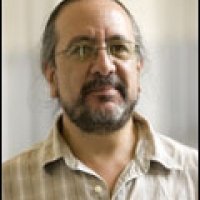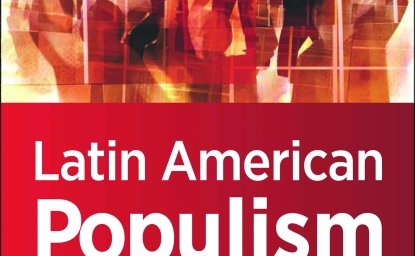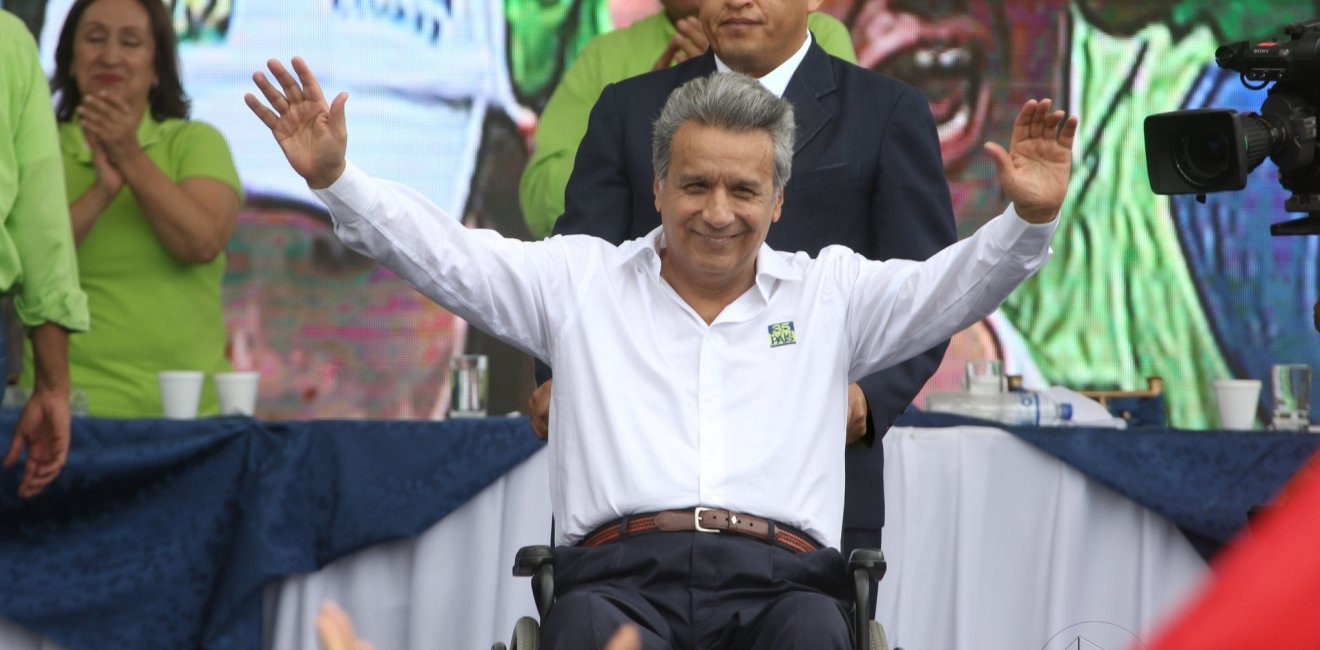Lenín Moreno, President Rafael Correa’s handpicked successor, won the runoff against Guillermo Lasso in Ecuador’s presidential elections on April 2, 2017. Unlike Correa, who was elected with overwhelming majorities in 2009 and 2013, Moreno won a narrow victory in the second round of voting, gaining 51.0 percent over Lasso’s 48.95 percent. Lasso did not accept the results and demanded a recount. Moreno will thus assume power with many citizens questioning his legitimacy and with ever-mounting accusations of corruption against the Correa administration. Moreno will have to manage an economic crisis provoked by low oil prices and government overspending. That said, his party, Alianza País (AP) controls Congress, the courts, the electoral council, and all the institutions of accountability.
Elections took place in Ecuador on a playing field that was anything but level. President Correa used state institutions to campaign on behalf of Moreno; state media outlets blatantly favored the incumbent’s candidate; and—untypically for Ecuador—Alianza País used thugs to attack Guillermo Lasso. Correa and Moreno argued that the future of the Latin American left and its policies of redistribution were in jeopardy should Lasso win. However, left-wing Ecuadorian parties such as the Popular Democratic Movement, the indigenous Pachakutik party, and leaders of the indigenous movement supported Lasso, a liberal banker. The anti-Correa coalition was unsuccessful in winning the runoff due in part to the fragility of its alliance and the difficulty in confronting a state apparatus that was used to campaign on Moreno’s behalf.
The Ecuadorian elections of 2017 might bring to an end a decade of political stability, economic growth, and autocratic control of the public sphere and of civil society under the leadership of Rafael Correa. Whereas from 1996 to 2005 three elected presidents were unable to finish their terms in office, Correa ruled for an entire decade. His administration ended neoliberalism in Ecuador, strengthened the state, inflated the bureaucracy, increased social spending, and redistributed income in a context of a boom in the price of oil, a commodity that represents 58 percent of the country’s total exports. Like Hugo Chávez in Venezuela, Correa changed the constitution in order to concentrate power in the executive and control all state institutions, including the courts. His party enacted legislation to control the content of what the privately-owned media could publish. His administration took over television stations and newspapers and created a state-owned media empire. Without a tradition of public journalism, the state media was put at the service of the government. Correa regulated the work of non-governmental organizations, created loyal social movements from the top-down, and accused hundreds of indigenous and peasant leaders of terrorism and sabotage for challenging the government’s policies of natural resource extraction.
Despite his apparent strength, Correa was a giant with feet of clay. He did not organize a political party in the true sense. Alianza País functioned as a clientelistic machine aimed at winning elections. The different factions within the party—technocrats, leftist activists, businesspeople, and traditional politicians—had in common only their loyalty and subordination to Correa’s charismatic leadership. In 2015 Correa’s party modified the constitution enacted earlier in his term to allow for his permanent re-election, but with a transitory clause that forbade Correa from running in 2017. His decision to temporarily step down from politics can be explained by the collapse of the price of oil and the crisis of his state-centered model of development. Correa did not want to govern under fiscal constraints, and social movements and citizens’ protests forced him to abandon his plan to remain indefinitely in power.
Lenín Moreno was Correa’s vice president and was in charge of social policies for people with physical disabilities. Moreno is not as confrontational as Correa, and was the only figure that could momentarily hold together Correa’s constituencies. His running mate, Jorge Glass, was also Correa’s vice president and was in charge of policies in the oil and minerals sectors. He is considered a strongman who can stop investigations into corruption, including a $33.5 million bribe allegedly paid by the Brazilian firm Odebrecht to government officials whose names have been kept secret.
Despite Correa’s wishes, it is unlikely that Moreno and Glass will become loyal puppets. They most likely have their own agendas and could even clash with the outgoing president. Moreover, in a context of economic crisis, it will be difficult to satisfy Correa’s different constituencies, and AP could explode into irreconcilable factions. Moreno will govern under allegations of governmental corruption, in a polarized nation, and without Correa’s charisma. In a context of lost legitimacy and with a bolder opposition, he could be tempted to follow the example of Venezuelan President Nicolás Maduro in using repression to cling to power. Moreno will still have to deal with indigenous resistance to mining projects. Hence, even though Correa was able to get his successor elected and his party continues to be in charge of all state institutions, Correa’s cycle of autocratic political stability could come to an end, leaving Ecuador to enter into a new phase of political turmoil.
Carlos de la Torre is Professor of Sociology at the University of Kentucky and a former Wilson Center Fellow. He is co-editor, with Cynthia Arnson, of Latin American Populism in the Twenty-First Century.
Photo Credit: Agencia de Noticias ANDES / Flickr / Creative Commons
Author

Professor, Department of Sociology, University of Kentucky

Latin America Program
The Wilson Center’s prestigious Latin America Program provides non-partisan expertise to a broad community of decision makers in the United States and Latin America on critical policy issues facing the Hemisphere. The Program provides insightful and actionable research for policymakers, private sector leaders, journalists, and public intellectuals in the United States and Latin America. To bridge the gap between scholarship and policy action, it fosters new inquiry, sponsors high-level public and private meetings among multiple stakeholders, and explores policy options to improve outcomes for citizens throughout the Americas. Drawing on the Wilson Center’s strength as the nation’s key non-partisan policy forum, the Program serves as a trusted source of analysis and a vital point of contact between the worlds of scholarship and action. Read more

Explore More
Browse Insights & Analysis
Latin American Populism in the Twenty-First Century

Greenland’s New Governing Coalition Signals Consensus


